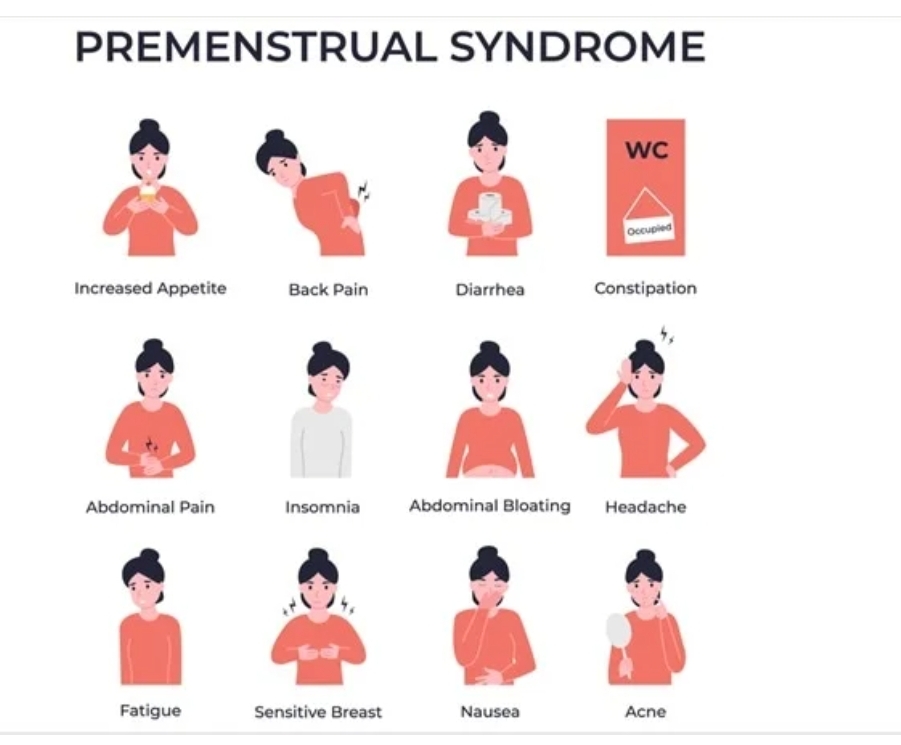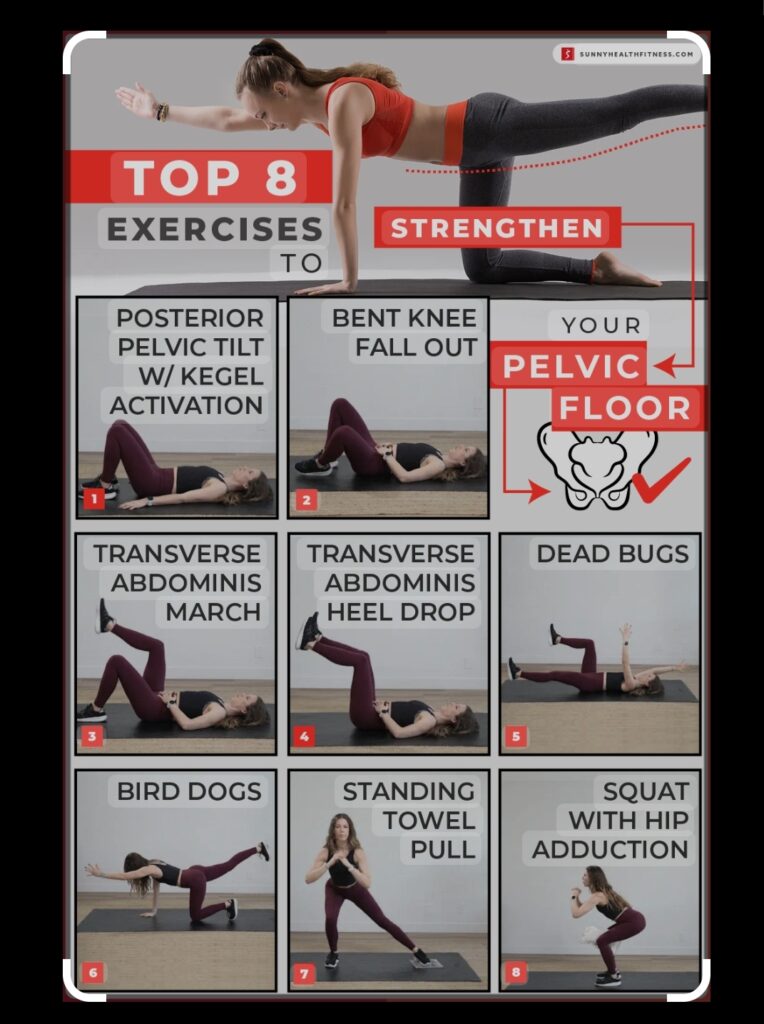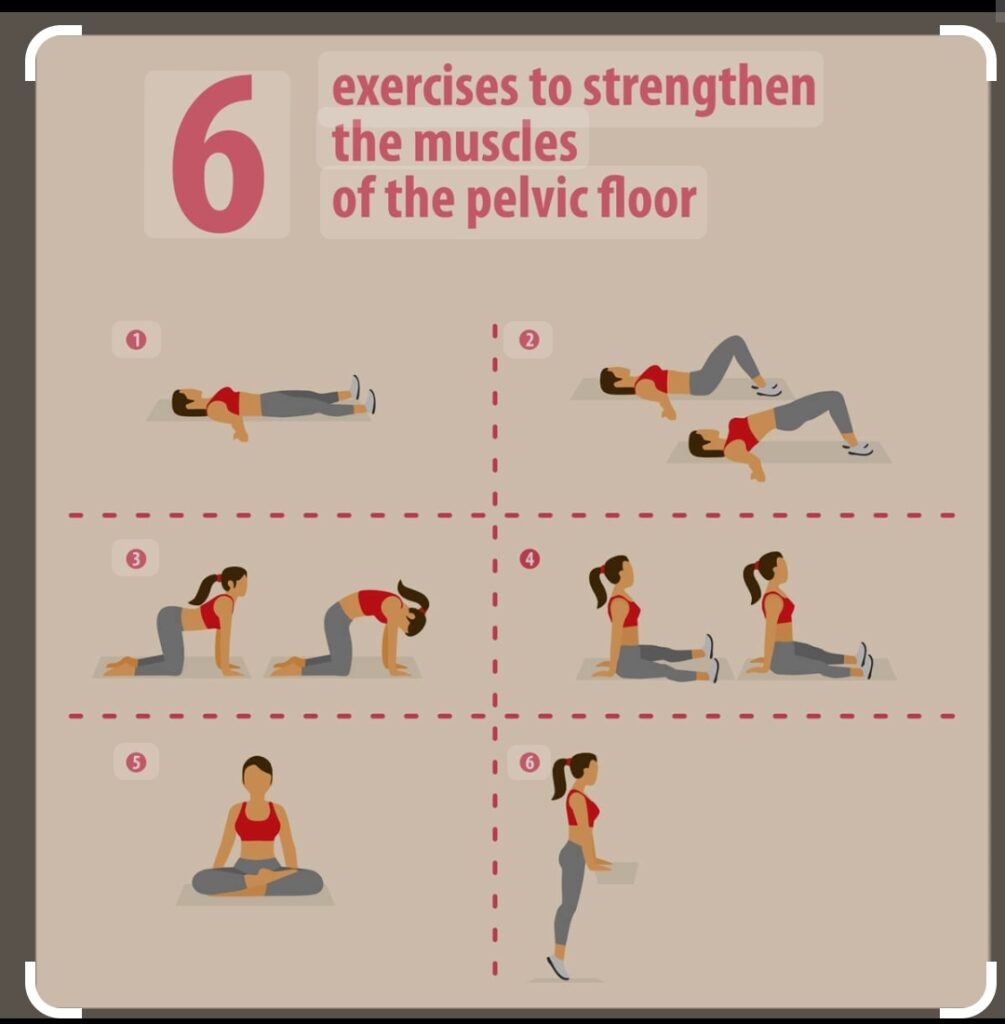ماہواری کی صحت سے مراد ان افراد کی جسمانی، جذباتی اور سماجی بہبود ہے جو حیض کا تجربہ کرتے ہیں۔ یہ مختلف پہلوؤں پر مشتمل ہے، بشمول:
Physical Health:
1. Menstrual cycle regulation
2. Pain management (dysmenorrhea
3. Heavy bleeding (menorrhagia)
4. Infections (vaginitis, endometritis)
5. Nutritional deficiencies (iron, vitamin B12)
Emotional Well-being:
1. Premenstrual syndrome (PMS)2. Mood swings3. Anxiety and depression4. Self-esteem and body image
Social and Cultural Aspects
1. Menstrual stigma and shame2. Access to sanitary products3. Menstrual leave policies4. Education and awareness.
Cultural and societal norms

Menstrual Disorders
:1. Endometriosis2. Polycystic ovary syndrome (PCOS)3. Fibroids4. Menstrual irregularities (amenorrhea, oligomenorrhea)5. Premature ovarian failure (POF)
Menstrual Health Care
:1. Gynecological check-ups2. Contraception and family planning3. Menstrual product options (pads, tampons, cups)4. Pain management and treatment5. Nutrition and lifestyle counseling
Importance of Menstrual Health
:1. Overall well-being and quality of life2. Reproductive health and fertility3. Economic productivity and participation4. Social equality and empowerment5. Breaking stigma and promoting awareness
How to improve Menstrual Health:
Lifestyle improvements can significantly impact menstrual health. Here are some ways to promote healthier periods:
Dietary Changes:
1. Balanced diet: Whole foods, fruits, vegetables, whole grains.2. Omega-3 rich foods: Salmon, flaxseeds, walnuts (reduce inflammation).3. Iron-rich foods: Spinach, beans, lentils (combat anemia).4. Calcium-rich foods: Dairy, leafy greens (support bone health).5. Hydration: Drink plenty of water.

Physical Activity:
1. Regular exercise:Yoga, walking, swimming (reduce cramps, improve mood).
Pelvic floor exercises (Kegels): Strengthen core and reduce incontinence..

Stress-reducing activities:
Meditation, deep breathing.Stress Management:Mindfulness practices: Meditation, journaling.Relaxation techniques: Deep breathing, progressive muscle relaxation..
Time management: Prioritize self-care.
Sleep and Relaxation:
1. Aim for 7-8 hours of sleep.. Establish a bedtime routine.Practice relaxation before bed.
Hygiene and Self-Care:
1. Regular bathing.2. Change sanitary products frequently.3. Practice good hygiene during menstruation.4. Engage in self-care activities (reading, listening ).
- Avoid or Limit:.
Processed foods.
Caffeine and sugar.
Unhealthy fats.smoky drinks and drugs
Supplements:
1. Omega-3 fatty acids.2. Vitamin B6 and B12.3. Iron and calcium supplements (consult a healthcare provider).
Menstrual-Friendly Habits:
1. Track your cycle.2. Keep a period journal.3. Prioritize self-care during menstruation.

Benefits of Lifestyle Improvements:
1. Reduced menstrual cramps.2. Improved mood.3. Regular cycles.4. Increased energy.5. Better overall health.